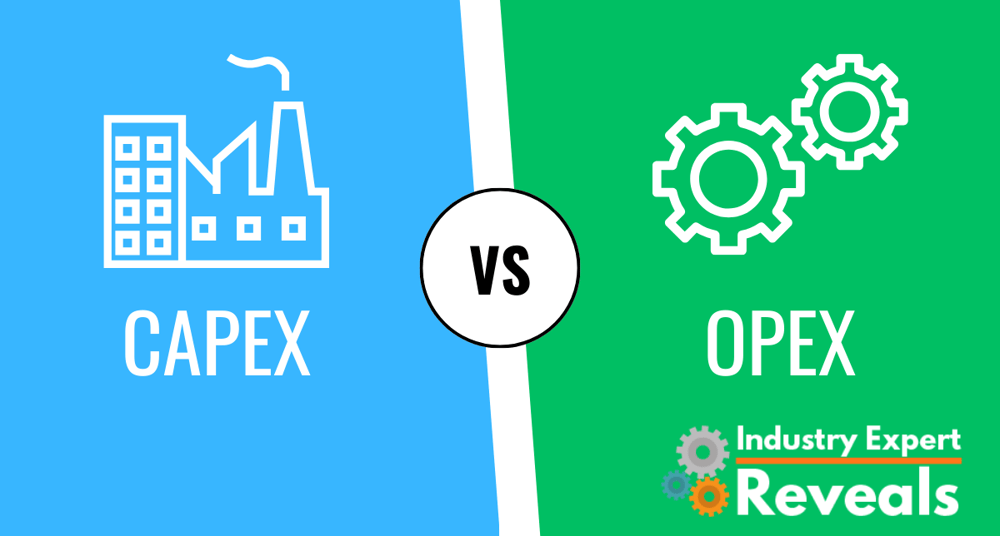By paying less, you might end up paying more
Industry Expert Reveals March 3, 2024 Selim Maalouf 5 min read

As some of you know, I have been working as an industrial engineer for the better part of 6 years.
To those of you who don't know this, It would seem like I am the kind of guy who writes his opinions in a blog form because none of the companies I work with actually listen to what I have to say. You would be correct in that assumption, but the rest of your interpretation is wrong.
Some think when you engage in consultative-based selling, that you get the chance to be the authority and dictate the terms of the agreement.
However, the reality lies in a twisted paradox where the consultant is doing what the customer wants, and not what he needs, to keep receiving those paychecks.
Most professionals would love to deny this fact, but even 4 decades of experience do not shield you from the reality of your growing overheads and dwindling revenues.
The same goes for industrial professionals employed in these companies: You have to stay on the boss' good side to keep those paychecks rolling.
But here? I have nothing to lose but my credibility. In return, I urge you to give these opinions a thought, for maybe I can help shine the light on some fact, behavior or trend that might be standing between you and your way to success.

Cost-saving is a result, not a measure
During the whole 3 years in which I have been working on the sales side of the business, the following correlation has proven to be a deadly causation:
When an economic recession hits a certain territory, its industrial players all seek to lower their capital expenditure (CAPEX).
When observed at a macro level, it is a very wise strategy to follow, ensuring a healthy cash flow during periods of low revenue.
Picking and choosing which projects to venture in is best approached with a frugal mentality. But once that lucky winner is chosen, that new production line which survived several board meetings and is now ready to be born, CAPEX should not be the only factor in your decision.
Your business decisions are not my business
However, what type and quality of production line you are looking to invest in is exactly my business.
I would never tell you to reduce or increase your production, nor would I dictate how many SKUs (Stock Keeping Units) you should be running.
But picture this scenario: 2 of your products are similar enough to be run on the same fully automated turnkey line.
But one of your production managers assured you that it is simpler (you both know he means cheaper) to run 2 separate semi-automatic systems.
And you both would be correct: 2 semi-automatic systems are a cheaper Capital Expenditure. So it is an easy, numbers-driven decision, right?
Yes, it should be a numbers-driven decision, but no, those are the wrong numbers to look at for this decision.

Operational Expenditure is a poison pill
Any business-savvy individual would never disregard potential OPEX in their purchasing decisions. Well at least, I wouldn't, since I do not have any stakes in this situation. But You, your purchasing manager, your production manager, even your vendor and by extension their sales representatives all have stakes in this transaction.
I cannot navigate this situation without stepping on some toes, so I might as well step on everyone's toes. Go big or go home! (Literally ...)
- The sales representative wants to close a deal, any deal. While conventional wisdom might suggest that salespeople chase the bigger deal, in reality, any deal is better than no deal. He will make sure to remove any friction and smooth out any obstacles that might stop you from signing on the dotted line. The easiest path is to agree with you, the customer.
- Your production/project/purchasing manager wants to win company points which they can cash out on a job promotion in 6 months. How convenient it is that our usual delivery lead times between production, shipping, and installation amount to a minimum of 6 months. by the time this purchase decision has manifested its true results, they will have been out of that department and even relocated to your headquarter offices in a different state/country. Yes-men are always disguised as technical experts, they are dangerous to the longevity of your business.
- You, the owner of the business. The one footing the bills. The one dealing with the losses. You guys are notorious for letting cash flow dictate your business decisions. I understand: it is easier to visualize your current cash flow and it is not easy to project your future growth and sustainability.

So what numbers should you consider?
All of them, and from different sources. There is no magic solution to lead you to a successful investment in your production line. But a sure way to make a bad purchase is to buy based on CAPEX alone.
The efficiency of operations, the durability of the equipment, the ease of repair, the upgradability path, all these criteria should be considered because all of them affect your company's bottom line.

